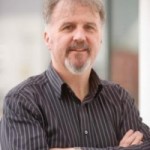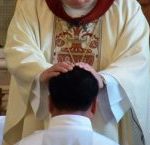“Where your treasure is, there will your heart be also.” Not a quote from RTE’s George Lee or the author David McWilliams but from Matthew 6.21.
The gospel quote tells us that true wealth is not about material possessions, but about depth of relationships. Likewise, true progress is not just about economic growth, rather it is about the development of the individual.
Poverty and injustice in our World
The challenge about “where your treasure is, there will your heart be” in my eyes led to an encyclical, Population Progressio, by Pope Paul VI, in response to the poverty and injustice he saw in the world. He felt the economy of the world should serve mankind and not just the few; that each person had the right to a just wage; the right to security of employment; the right to fair and reasonable working conditions; the right to join a union; and the right to shelter.
The thrust of the challenge
The thrust of the challenge ‘where your treasure is, there will your heart be’ has justice at its heart. It charges us to take seriously our place as stewards of God’s creation for the sake of future generations, and highlights the need for promoting trade justice, as well as the necessity of mutual solidarity between donor and recipient when it comes to aid and debt relief.
Perhaps this Christmas season we could begin by asking ourselves three basic questions: what part of my life is cluttered; what part of my life is depleted; and what part of my life is closed?
Perhaps our lives are cluttered by too many possessions or too much work. If so, let’s work out ways we could live more. Let us look at why we work so hard. It might even be to avoid spending time with our partner, or perhaps, it is to do with peer pressure, an unreasonable workload, or greed.
Perhaps we are subconsciously yearning for something more—the spiritual treasure that money can’t buy. Living sustainably is about more than recycling. It is about our own emerging transformation.
Perhaps it is time to walk more and drive less; to be aware of the water we use and the electricity we can save; to re-cycle and re-create. We can’t live on empty and neither can the earth.
Perhaps a part of our life is closed. Let’s begin by asking ourselves how we view difference and whether we are open to people of other faiths and cultures.
Thought for the week
As your thought for the week, especially during this Christmas season, look at ways you can help create a world in which human dignity is respected and where everyone can reach their full potential. This would be true progress and would be worth more than any economic growth. Happy Christmas to each and every one of you. May the future be bright for us all.



